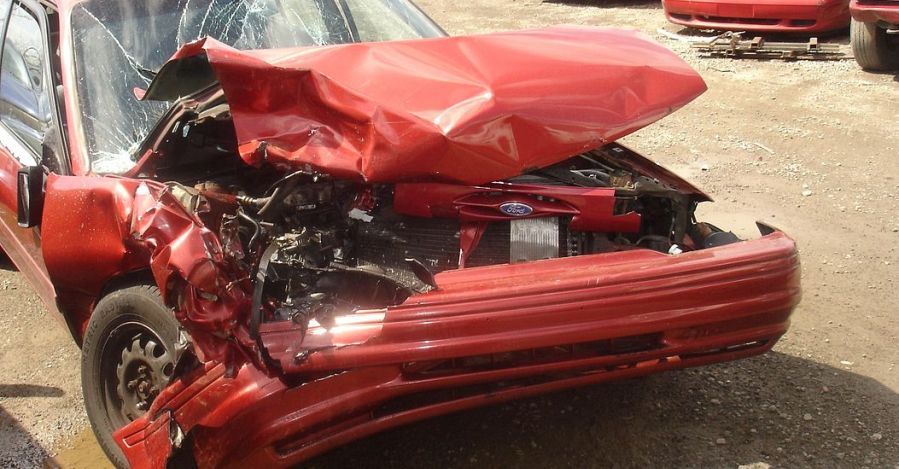Across the United States in 2016, more than 10,000 people were killed in traffic accidents involving intoxicated drivers. More than ten percent of those fatalities – over a thousand – happened right here in California.
Keep reading, and you’ll learn what your family’s rights are if you lose a loved one tragically and unexpectedly in this state because another driver was irresponsible and intoxicated.
When any kind of negligence – including driving under the influence – causes another person’s accidental death, California law entitles the surviving family members to compensation.

If you’ve lost a family member because another person was driving under the influence, arrange immediately to discuss your family’s rights and options with an experienced Orange County wrongful death attorney.
Obviously, after the tragic and unexpected death of a loved one, the surviving family members must deal with their personal grief and suffering, and it is one of life’s most difficult moments.
At such a time, your family will be facing a variety of daunting emotional and legal matters simultaneously.
WHO CAN FILE A WRONGFUL DEATH CLAIM IN ORANGE COUNTY?
No sum of money can ever sufficiently compensate a family for the unanticipated loss of a beloved family member.
Nevertheless, in spite of the difficulties, wrongful death claims must be initiated as early as possible.
A wrongful death claim can hold responsible parties accountable and help family members deal with the financial implications of a wrongful death.
Who qualifies to file a wrongful death claim in California?
- a surviving spouse or domestic partner of the decedent
- children of the decedent
- any person who would be entitled to inherit from the decedent
- persons dependent on the decedent at the time of death, potentially including a putative spouse and his or her children, and stepchildren or parents of the decedent (A “putative” spouse is the surviving spouse of a void or voidable marriage who is determined by the court to have believed in good faith that the marriage to the decedent was valid.)
- a minor who has resided with the decedent for at least 180 days in the decedent’s home and was dependent on the decedent for at least fifty percent of his or her support
If an intoxicated driver is allegedly the negligent party in a wrongful death case, that driver will probably be charged by the state with DUI manslaughter, and a criminal conviction for DUI manslaughter will be powerfully persuasive evidence in support of your family’s wrongful death claim.
WHAT ARE SURVIVING FAMILY MEMBERS ENTITLED TO?
If the impaired driver carried automobile insurance coverage, the surviving family members of the impaired driver’s victim may file a wrongful death claim for their financial and emotional damages.
Survivors are entitled to damages for the deceased victim’s lost wages and lost earning capacity, for their pain, suffering, loss of companionship and consortium, and even for the deceased person’s final medical bills and funeral expenses.
Three types of damages can be awarded in wrongful death cases in California.
“Compensatory” damages compensate quantifiable monetary losses like lost income, medical bills, and funeral costs.
Non-economic damages compensate surviving family members for pain, suffering, loss of companionship, and loss of consortium.

“Punitive damages” are intended to punish the negligent party – called the “defendant” in a personal injury case – for the defendant’s negligent behavior.
Punitive damages are rarely awarded in California wrongful death cases, but if driving under the influence is involved, surviving family members are more likely to be awarded punitive damages because driving under the influence is a crime.
Every wrongful death case is unique, so you’ll need the advice of an Orange County wrongful death attorney regarding the details of any particular case.
HOW ARE WRONGFUL DEATH CLAIMS SETTLED?
The surviving family member who brings a wrongful death claim is called the “plaintiff,” and that person usually brings the claim as the representative of the decedent’s family.
Wrongful death claims are often settled out of court before any trial can begin.
Usually, the lawyers for both sides are able to reach a settlement that is acceptable to all parties involved.
When no acceptable settlement amount is offered and a wrongful death lawsuit goes to trial, the plaintiff’s side must prove the three “elements” of a wrongful death claim.
Generally speaking, the three elements that must be proven are the duty of care, the breach of that duty, and the causation of wrongful death:
In a wrongful death case, a plaintiff must prove that a defendant owed the deceased person a “duty of care.”
For instance, in the case of a wrongful death arising from a DUI accident, the plaintiff must show that the defendant a had duty to other drivers, passengers, and pedestrians to obey traffic laws and drive safely.
A plaintiff also must show that a defendant breached the duty of care that was owed to the decedent.

In a DUI wrongful death case, if the defendant tested over the legal limit for drinking and driving (a blood alcohol content level of 0.08 percent), or if the defendant is convicted of the criminal DUI charge, there is strong evidence that the duty of care was breached.
Finally, a plaintiff in a DUI wrongful death case must prove that the breach of the duty of care – in this case, by driving under the influence – was a direct cause of the decedent’s wrongful death.
IS THERE A TIME LIMIT FOR SURVIVORS TO TAKE LEGAL ACTION?
Surviving family members must file a wrongful death claim as soon as possible after a wrongful death.
The statute of limitations in the state of California for a wrongful death claim arising from a traffic collision is two years from the date of the family member’s death, but you cannot wait two years and then try to act at the last minute.
Evidence and memories will deteriorate or disappear over time.

Instead, take your wrongful death case as soon as possible to a skilled Orange County wrongful death attorney who will review the DUI accident and the details of the case, gather evidence and questions witnesses, and then fight on your family’s behalf for the compensation you need.
Probably nothing is more emotionally disturbing than the sudden and abrupt loss of a loved one, especially when the death was caused by a stranger’s irresponsible negligence and was entirely preventable.
Here in California, the law guarantees that surviving loved ones will have the opportunity to seek the justice and compensation they need and deserve.





